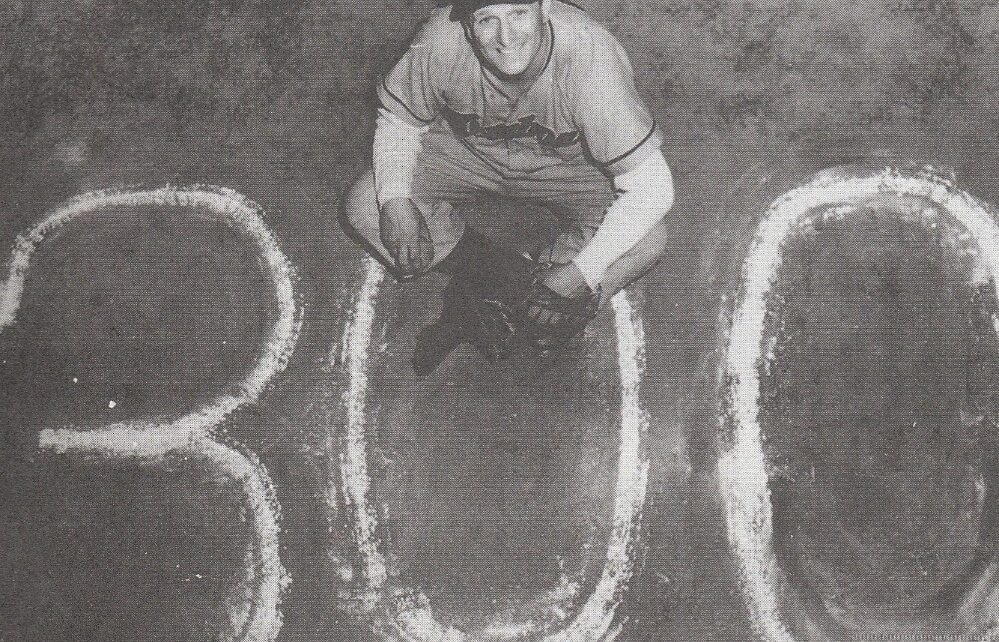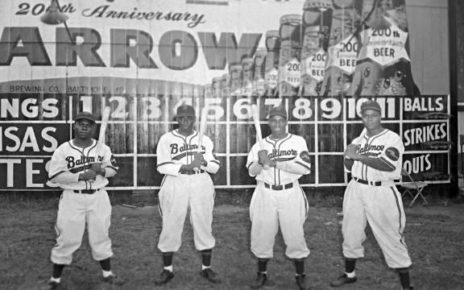The name Victor Starrfin doesn’t appear in a search of any of the main baseball stat sites. It’s not a name that is well known, anywhere really. Heck, I’m someone who likes to consider himself a student of the game of baseball and when I stumbled across Starrfin’s name while researching another project I had no idea who he was or what I was in for. Going down the rabbit hole of Starrfin’s career and accomplishments ended up being one of the best experiences I have had researching baseball in some time.
There are plenty of reasons why Starrfin’s name is unknown to most. He last played in 1955, he played in the Japanese Baseball League, and he was a Russian playing the game of baseball. The first two factors speak more to the lack of historical perspective most of us have on the Japanese game of baseball prior to the existence of Nippon Professional Baseball. Starrfin being Russian contributes to his anonymity through the sheer fact that baseball is a fringe sport at best in Russia. Starrfin was a minor celebrity in Japan following his playing days but he remained virtually unknown in his home country of Russia. It’s hard to get a foothold in history when time passes you by and your home country doesn’t much care for the sport you played.
Digging into Starrfin’s career it was stark just how dominant he was over an extended period of time. Starrfin played in 19 seasons in Japan. He ended his career with a record of 303-176 with an ERA of 2.09 and 1,960 strikeouts in 4,175.1 innings pitched. He was the first Japanese pitcher to reach the 300 win mark and spent a career hovering around a 2.00 ERA year after year. The Russian born pitcher was consistently great, up until his very last season when at the age of 38 he posted an ERA of 3.89 for a very bad Takahashi Lions squad of the Eastern League. He did all this while missing a season due to being interned in a detention camp during World War II.
One season, in particular, stands out, 1939 with the Tokyo Kyojin (who would one day become the Yomiuri Giants). That year Starrfin started 68 games and threw 458.1 innings. At a time when pitchers in America were starting to throttle back their usage, Starrfin threw until his arm was going to fall off. The scary thing? Starrfin didn’t even throw the most innings in the league that year. Japanese baseball has a history of using and abusing pitchers’ arm and that was the case just as much, if not moreso, in the 1930s-1950s as it is today.
I digress, back to Starffin’s dominant 1939. That year he won 42 games for the Kyojin while losing 15. He led the JBL with 282 strikeouts, and despite throwing an astronomical number of innings he only gave up 4 home runs. He finished the season with an ERA of 1.73. He didn’t throw quite as much in 1940, only 436.0 innings. Just think about that for a second, over two seasons Starrfin threw a combined 894.1 innings. He would never have another stretch like that in his career and the limited data I could find shows that the JBL backed off using their pitchers as much in the following seasons. Regardless, for two consecutive seasons Starrfin was both a workhorse and a fantastic pitcher.
Starrfin led a fascinating life, which is obvious as a Russian born pitcher in a Japanese baseball league. There was also his time in the aforementioned detention camp. That was preceded by him changing his name for a season to try and avoid being put in a camp. Alas, racism and prejudice won out and one of the most heralded pitchers in the history of Japanese baseball spent a year in a detention camp because of his Russian heritage. As I previously mentioned Starrfin did become somewhat of a minor celebrity in Japan. Though, that didn’t last long as he was killed in a car accident at the very young age of 40.
One of my favorite things about baseball research is discovery. It’s that drive to find something new and exciting that led me to the career of Victor Starrfin. He may not have a profile on Baseball Reference or be known to anyone but the most hardcore of Japanese baseball fans. Neither of those things changes the fact that Starrfin is an important figure in the history of baseball. He earned his place in the Japanese Baseball Hall of Fame, but I’d love to see him be placed in the National Baseball Hall of Fame as well. Starrfin isn’t just a peculiarity within baseball history, he is a vital part of baseball’s history and deserving of far more acclaim than he has ever received.
Lead photo courtesy of Unknown – Unknown




